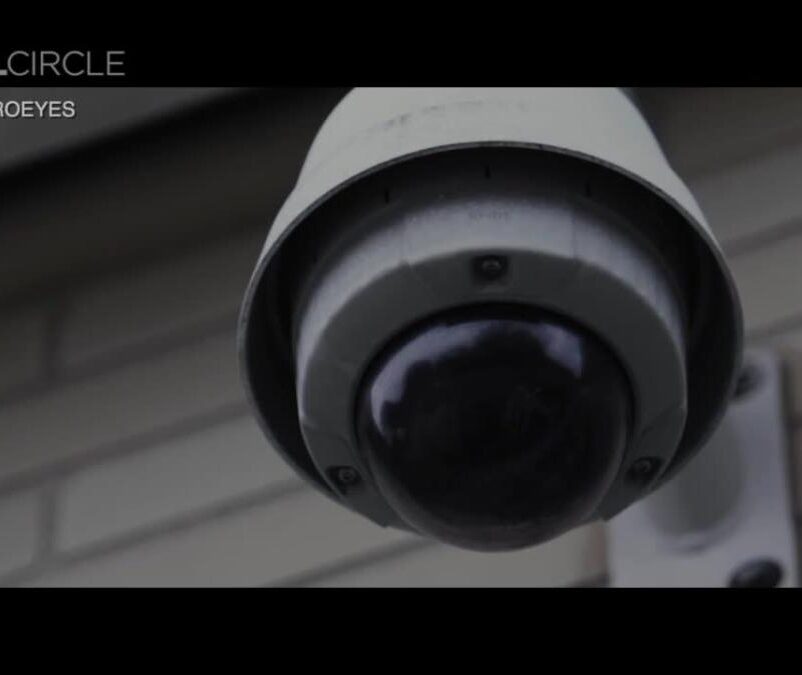
If there is one thing that seems more typical of academia than having a terrible work-life balance, it is complaining about the terrible work-life balance we have. It is hard to explain to outsiders (or at least to my family) why we are simultaneously complaining about our often very unstable and under-paid jobs, yet also stubbornly refusing to quit. I recently had a reason — a suddenly escalating Twitter thread — to consider this topic at length. The following are my thoughts on the matter.
I have seen so many threads recently bemoaning the working culture in academia, and I fully agree with many things. BUT: y’all know you are academia and it is on you to come together and fix it, right?
I have a radical and simple first proposal: Don’t work on the weekend. (1/9)
— Claas Voelcker (@c_voelcker) October 25, 2021
One of the most baffling things I noticed since becoming a researcher is the way that academic time commitments are handled. As researchers, we take on many roles: students, scholars, event organizers, reviewers or even editors, writers, teachers, and so on. But beyond that, we are more. We might be friends, partners, parents, musicians, artists, community organizers, or a thousand other roles that people fulfill in their lives. For most people, these roles outside of work occupy their evenings, weekends and vacations, yet almost every academic I know seems to fill every available bit of time with academic pursuits. It has been joked that academia is a cult, and I feel there might be some truth to that accusation due to the way that it seems to demand every bit of our time..
Why are academics so convinced that we must work on the weekend? A lot of young researchers may have read my introductions and sagely nodded along. But where does this idea come from? After all, we are researchers, so maybe we should be questioning where that idea originates and how it affects us.
Let me back up a little. I started my master’s degree in 2018 and my PhD in 2020, and one of the most important things I learned during my master’s was how NOT to work on weekends. I learned how to structure my time, deadlines and classwork in such a way that everything actually fits in an eight hour workday. I was also quite proud of this achievement, and barring my master’s thesis and other major deadlines, I was moderately successful in defending my freedom. Not working on weekends seemed like a graduation from the messy life of an undergrad into the more structured life of an adult.
Fast forward to the present, and I seem to be unlearning this treasured skill. And the strangest thing is, I do not know where I got the idea that I should be working on weekends. My advisors certainly rarely suggested it without cause, and I was able to submit at least one manuscript so far without giving up most of my weekends. Maybe it was the unbelieving eyes of a colleague when I asked him why I would be working on the weekend a month before a deadline? Maybe it is the incessant barrage of seemingly more successful colleagues on Twitter? Maybe it is the avalanche of opportunities, applications, scholarships etc. that seem to be a necessity of PhD life?
Now we come back to Twitter. After reading another set of seemingly obligatory “work-life balance in academia is terrible” hot takes, I decided to add a thread of my own. I had a “radical” proposal: just don’t work on the weekend? This hit quite a few nerves and spawned a lot of comments, retweets, criticism etc. But surprisingly few people engaged with the core statement I was trying to make: Who told you you should be working on the weekend?
I agree this is an important problem and that competition can cause pointless misery. The reason I brought this up is that is that suggesting a unilateral pro-social move can end up just being a tax on the pro-social.
— David Duvenaud (@DavidDuvenaud) October 25, 2021
2/2 that this is not sustainable is true but misses the point, because PhD goes for a limited time, so “only” need to sustain N years (or burn out and leave before N).
PS: not saying I support overtime.
— Lucas Beyer (@giffmana) October 26, 2021
My advisor never asked me to work in the weekends but it was the feeling of ‘catching up with others’ mixed with impostor syndrome that I would work long hours even in the weekends!!
— Doer (@Dreamer44375747) October 25, 2021
I think working harder can always “pay off”—bigger issue is people’s identities get wrapped around their achievements, they see getting a second or lower tier opportunity as a kind of death, and they work themselves to ill health for very subjective and ephemeral ideas of success
— jarrod haas (@jarrodhaas1) October 25, 2021
And let’s be honest: every decision you make on how to spend your time means you’ll miss out on something. When you look back, will you be okay with having missed weddings, funerals, reunions, relaxing nights with friends and partners so you could write a couple more paragraphs?
— Dr. Crystal Steltenpohl (@CrystalNSYoung) October 25, 2021
A striking fact to me was that some of the replies sounded almost pleading; The sentiment often seemed to be, “I would keep my weekends free, but somebody else will be harder/better/faster/stronger than me”. Even some senior researchers wrote that they felt an inescapable force pushing them towards working on the weekend, to the detriment of their families or friends.
One point that was raised again and again was the fact of competition: if one person works more than everybody else, won’t they have an edge? But at the same time, a lot of my friends in industry do not seem to feel the same guilt when taking the weekend off. My academic friends however, both in Europe and America with vastly different working cultures, struggle to keep even a small time of their lives free of the all consuming specter of papers, students and reviews. So there has to be something deeper going on here, since competition is not an exclusive feature of academia.
And the truth of the matter is that academics build academia. There is nobody except ourselves who could fix work culture problems, and so any academic complaining about working culture raises another important question: Why aren’t we fixing it? In the rest of this article I will try to summarize the reasons for why people are so drawn to working on the weekends, and what we could do to fix it.
Personality
A lot of PhD hopefuls come with a lot of love for a very particular, sometimes even peculiar field. There is a certain type of person, especially in Computer Science, who looks at the excellent job market in industry and decides: no, I would rather muck about for a couple of more years in an underpaid position with little power to really understand what is going on.
In addition, the grad school admissions system almost ensures that PhD candidates are fairly competitive, having had good grades and enough je ne sais quoi to convince at least 1 or 2 professors to support their applications and survive a fairly harsh competition for interviews and acceptances. So it stands to reason that for a lot of graduate workers working on the weekend is already the norm and may not even be seen as a burden. Some people have even expressed their happiness about the privilege of being able to immerse themselves in a field so completely, without distraction. This would not be a problem itself, but it does not explain why so many people express that it is a problem for them.
Power and opportunities
PhD workers are under-paid (at least in North America but also many other places). This is a very broad statement and there are several caveats: I am mostly talking about Computer Science, ignoring future job prospects and comparing to fairly successful CS grads in major cities, which might be an unfair comparison for other fields or even the average CS grad.
This lack of pay necessitates internships and scholarships for many, which puts a lot of us at a constant pressure to stand out. A scholarship is, almost by definition, a recognition that you stand out amongst the crowd, and if you already have passed a competitive admission cycle, standing out even further gets harder, not easier. Yes, the pool for comparison is smaller, but the competition is also more fierce. Internships are a similar story; at top schools getting an internship in a local SE shop will not lead to a lot of kind words from your supervisors. So we fight for FAANG internships and look enviously on the lucky ones who got nice research scientist deals with Google.
As a junior professor, the wheel continues. Getting a job is hard and getting tenure even harder. Without it, you will often need to uproot a young family, ask your partner to find another job again in some new place, or accept a life in a long-distance relationship.
The many hats of an academic worker
Work-life balance explained. Courtesy of @ErrantScience. pic.twitter.com/DbKCnpF4BL
— Shit Academics Say (@AcademicsSay) October 12, 2016
Even the lucky ones with a scholarship or backing from a renowned FAANG company will probably still find themselves embroiled in a constant struggle for time. As said above, we all have many jobs, often all at once: research, teaching, and all the million little things which make up “community service”. In addition, we conduct research, write code or design experiments, write papers and create presentations.
All of these skills cover a very broad set of areas, and there is surprisingly little support to teach you how to do it. I have yet to see any classes titled “How to structure your messy academic research notes into an actual journal”, “How to design figures so your paper does not look like your 5 year old drew everything”, or “How not to lose your mind setting up CMT for a workshop”. Teaching is surprisingly well supported by most schools that I have seen, but even here actually attending 2 weeks of workshops on classroom presentations and student mentorship will probably not free anybody from submitting their paper at the next deadline.
On top of that, very little aid is offered to us in structuring our days, and from what I have observed, the whole story becomes even more difficult once you enter the faculty stage, because while none of the previous jobs get a lot lighter, mentorship, grant applications, department service and administrative responsibilities all come to take a part of the ever shrinking pie of time. Managing this plethora of duties and responsibilities independently without help is of course one of the hallmark skills the PhD teaches you. But in many cases, this teaching looks more like throwing young graduates into the water and seeing which ones have the ability to swim. So on top of having lots of jobs, many of us probably also are not very skilled in using our time efficiently, which can often be a more important question than people realize.
Overwork as a cultural norm
All of these – selection of candidates, financial constraints, lack of opportunities, and a large heap of responsibilities beyond just “research” – have contributed to a situation where overwork is simply a norm in academia. Breaking any norm is difficult, but especially when real fears about missed opportunities align with a competitive spirit, it can be downright impossible to escape the situation and harmful if done haphazardly. In an environment where people regularly show that they work on the weekend and at night, a new graduate worker who is probably already worried about fitting in will just adapt to this norm. Even if this creates a strain, the environment is often built on an implicit assumption that you will be willing to sacrifice a lot to be in this position. After all, you already submitted yourself to an arduous recruiting process, and many people would be happy to get the same opportunities as you.
Why is this bad?
In my view, the assumption that only competition brings out the best in people is one of those academic mainstays that should be relegated to the garbage bin of bad ideas. It is well established that people produce creative and interesting works only if they feel a certain amount of safety. Maybe not complete safety, there is something to be said about having to struggle a bit, but thinking about bad pay, an unstable job and no free time at all is not really motivating to me, and research seems to back this up. On the contrary, nothing is as demotivating for me as fearing for your future. Having people struggle constantly cannot be the basis of good scholarship, as it motivates chasing low hanging fruit and even academic dishonesty. Furthermore, the toll it takes on graduate workers is well documented by now, for example, there are many articles being written about doctoral candidates facing an epidemic of mental health problems.
I have rarely had a good idea after working for days and days without breaks. Maybe I am different from others this way, but I do not really think that I am completely outside the norm. Continued work without too many interruptions can lead to breakthroughs, and there will always be people who are able to present a revolutionary theory after isolating themselves during a pandemic. But, banging my head against the same problem every weekend mostly creates headaches for me. I had great insights hiking with friends in Switzerland, chatting with my supervisor over a coffee and watching a boring TV show. I also had great success working for long hours at the office, and I appreciate the necessity of hard continuous work. But only when I felt like I would at some point finish, go home, and unwind was I really able to grind away at a problem. I love my work, but I do sometimes want to do something else too.
Besides this, the assumption that non-stop competition is good makes academia lonely, uniform, and cold. If only the “strong” survive, we meticulously weed out the unprivileged, the sick, the poor, anybody whose perspective might genuinely enrich the ivory tower of academia. We disregard those with potentially brilliant ideas who had the strange idea to become a parent, or who need the space on a weekend to tend to their health, their family or their friends. An antiquated notion of “strength” has, to the best of my knowledge, not been shown to correlate well with academic insight outside of a few ivory tower examples, and some of the greatest minds in the world allegedly slept north of 10 hours a day.
Before concluding, I want to acknowledge that while I have been focused mostly on graduate workers, a lot of the problems are not unique to us alone. Postdocs and junior faculty were amongst the most active in engaging with my tweet. They are in the strange position of being both in charge of groups and their culture, while at the same time subject to many of the same cultural and structural pressures as graduate workers due to tenure committees and other early-career challenges. So I call on everybody, no matter what stage of their careers they are at to realize that this is a problem facing all of us.
Conclusion
The question to me is not: should or shouldn’t we work on weekends? This is a personal choice; some people might find the idea of a fixed weekend suffocating and some people might find sleep to be completely unnecessary (who are you and what is your secret?). I propose another set of questions: why do people feel like working without a break is necessary, is this helpful, and how could we change it? Does it get us better scholarship, more insight into the world, or faster progress?
I do not think so, and I especially do not think empathetic scholarship is fostered by transforming academic work into a competition of “who can ignore their human needs the hardest”. Proposing concrete structural change is hard, but I think the place to look at most closely is how to change graduate programs so they actually allow you to grow, learn, and work with support (financial and otherwise). This will not go smoothly without some heavy investment into infrastructure and revisiting how hiring and other crucial decisions happen.
As a personal suggestion, I would offer the following exercise: Ask yourself if you were really productive during your working hours in the last weeks. For many, the guilt of being unproductive often leads to even longer hours, but often the opposite might be more helpful. If you were only productive for 6 hours in a day, then only work those 6 hours and use the rest to recharge. This takes courage, a decent amount of self-reflection and honesty, and might not work in your specific situation. But I would love to hear more about people who submitted a paper in time and slept well, instead of glorifying a grind of which a decent part was probably spent on Twitter.
Looking at the structural side of things, I have a small observation to offer: North American scholarship programs rarely consider need, while most German ones almost exclusively account for need (at least programs offering general long-term funding). Base pay is higher, while rewards for large successes are often smaller, an average award does not double your funding all of a sudden. These awards are still motivating, but they become less necessary and life-changing. Naturally competitive people still strive towards them, they fulfill their motivating function quite well. But people who are struggling, have other responsibilities, or might just have a momentary obstacle in their lives are not endangered automatically by lapsing in the competition for a while.
Most importantly, if you feel like ranting about the academic work culture, use your instincts as a scientist: question the assumptions and shine a light at the hidden structures which force you to work against yourself. And then, work to change it, however you can. Change cannot come without advocacy from everybody, because after all, we ourselves are the working culture in academia.
Links to other articles on graduate student mental health:
Staying in and Staying Healthy: Insights for Positive Mental Health in Graduate School
Surviving grad school — with your mental health intact
Mental Health Crisis for Grad Students
Author Bio
I am a PhD student in Reinforcement and Machine Learning at the University of Toronto and the Vector Institute, supervised by Profs. Animesh Garg and Amir-massoud Farahmand. My research focuses on model based reinforcement learning and closing the gap between learning acurate models for future predictions and learning high performing models for planning.
Originally from Germany, I received a Bachelor and Master degree from the University of Darmstadt with Honors. There, I had the great pleasure to be supervised and mentored by Prof. Kristian Kersting.
I am proud to serve as a core organizer for Queer in AI, where I help promote the interests of queer researchers and practitioners at AI /ML conferences and in the wider community.
Citation
For attribution in academic contexts or books, please cite this work as
Claas Voelcker, “Working on the Weekends – an Academic Necessity?”, The Gradient, 2022.
BibTeX citation:
@article{class2022working,
author = {Voelcker, Claas},
title = {Working on the Weekends – an Academic Necessity?},
journal = {The Gradient},
year = {2022},
howpublished = {\url{https://thegradient.pub/working-on-the-weekends-an-academic-necessity} },
}




